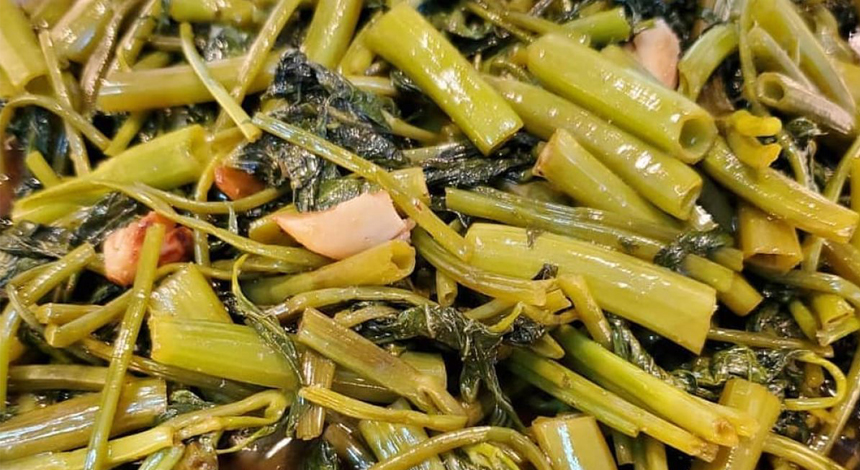
Kangkong, also known as water spinach or swamp cabbage, has several nutritional benefits. It is everywhere in the Philippines. If it is not free, it is really cheap to buy at the local market. I have it in my garden and the way I like it cooked is stirfried with belachan and chilli; very Singaporean. Here are some of its key nutritional values:
1. Vitamins and Minerals:
Kangkong is a good source of vitamins A, C, E, and K. It also contains minerals such as calcium, iron, potassium, and magnesium.
2. Antioxidants:
Kangkong is rich in antioxidants, including beta-carotene, lutein, and zeaxanthin. These compounds help protect the body's cells from damage caused by harmful molecules called free radicals.
3. Fiber:
Kangkong is a good source of dietary fiber, which aids in digestion, promotes a healthy digestive system, and helps prevent constipation.
4. Low in Calories:
Kangkong is low in calories, making it a suitable choice for those who are watching their calorie intake. It can be a good addition to a balanced and weight-conscious diet.
5. Hydration:
As the name suggests, kangkong has a high water content, which helps keep you hydrated and supports various bodily functions.
6. Iron Content:
Kangkong contains iron, which is an important mineral involved in the production of red blood cells and the transportation of oxygen throughout the body.
! DisclaimerIt's worth noting that the nutritional value of kangkong can vary depending on factors such as the growing conditions, preparation methods, and cooking techniques. To maximize its nutritional benefits, it is recommended to consume kangkong as part of a varied and balanced diet that includes a wide range of fruits, vegetables, whole grains, and lean proteins.